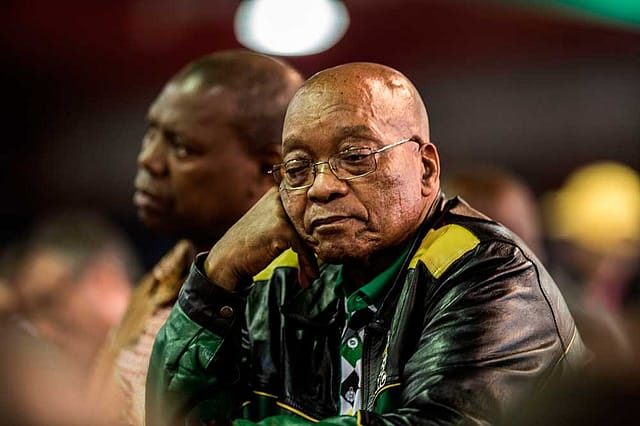Freedom From Zuma

WHEN JACOB ZUMA called it a day on February 14th, South Africans breathed a collective sigh of relief. The embattled president had been followed by charges of corruption in high places—referred to as ‘state capture’— for a number of years. During this time, South Africa turned from a potential African winner to a country plagued with economic problems and soaring crime.
On the morning of February 14th, an elite police investigation unit called Hawks raided the sprawling mansion of the Gupta family in Johannesburg’s upmarket Saxonwold suburb. The same day, Zuma was to face a no-confidence motion in parliament. Just weeks earlier, the African National Congress (ANC), Zuma’s party, had elevated Cyril Ramaphosa, a party veteran, to its leadership. That was a cue for Zuma to go. Ramaphosa had publicly said that Zuma would not be ‘humiliated’. The period between that statement and the raid by the Hawks was a grace period for the president to quit with dignity. But such signals are rarely heeded by power-crazed rulers in Africa’s southern cone: just months earlier, another such ruler, Robert Mugabe, had been given similar signals. He refused to go until the last turn of the screw.
The end was visible for some months. ANC had been restive for years as charges of crony links between Zuma and the Gupta brothers—businessmen of Indian origin who made it big—turned from mere corruption into something much more toxic. The Guptas had allegedly acquired such clout over the president that they were even rumoured to be behind the shuffling of South African finance ministers. This was not just about bagging lucrative contracts or other usual modes of corruption. The Zuma presidency had the air of an arbitrary dispensation where a small clique controlled the political and economic fortunes of a country that had gained political emancipation for the majority population less than quarter century ago.
Openomics 2026: Continuity and Conviction
06 Feb 2026 - Vol 04 | Issue 57
The performance state at its peak
South Africa’s struggle against apartheid was unique in history. It was not subject to colonialism of the kind seen by many other countries, including India. But it has been subject to the same political ills that later came to afflict other decolonised nations. The difference is that cronyism, corruption and unresponsive government dawned on South Africa far quicker than in others, and that’s a pity, given Nelson Mandela’s idealism.
